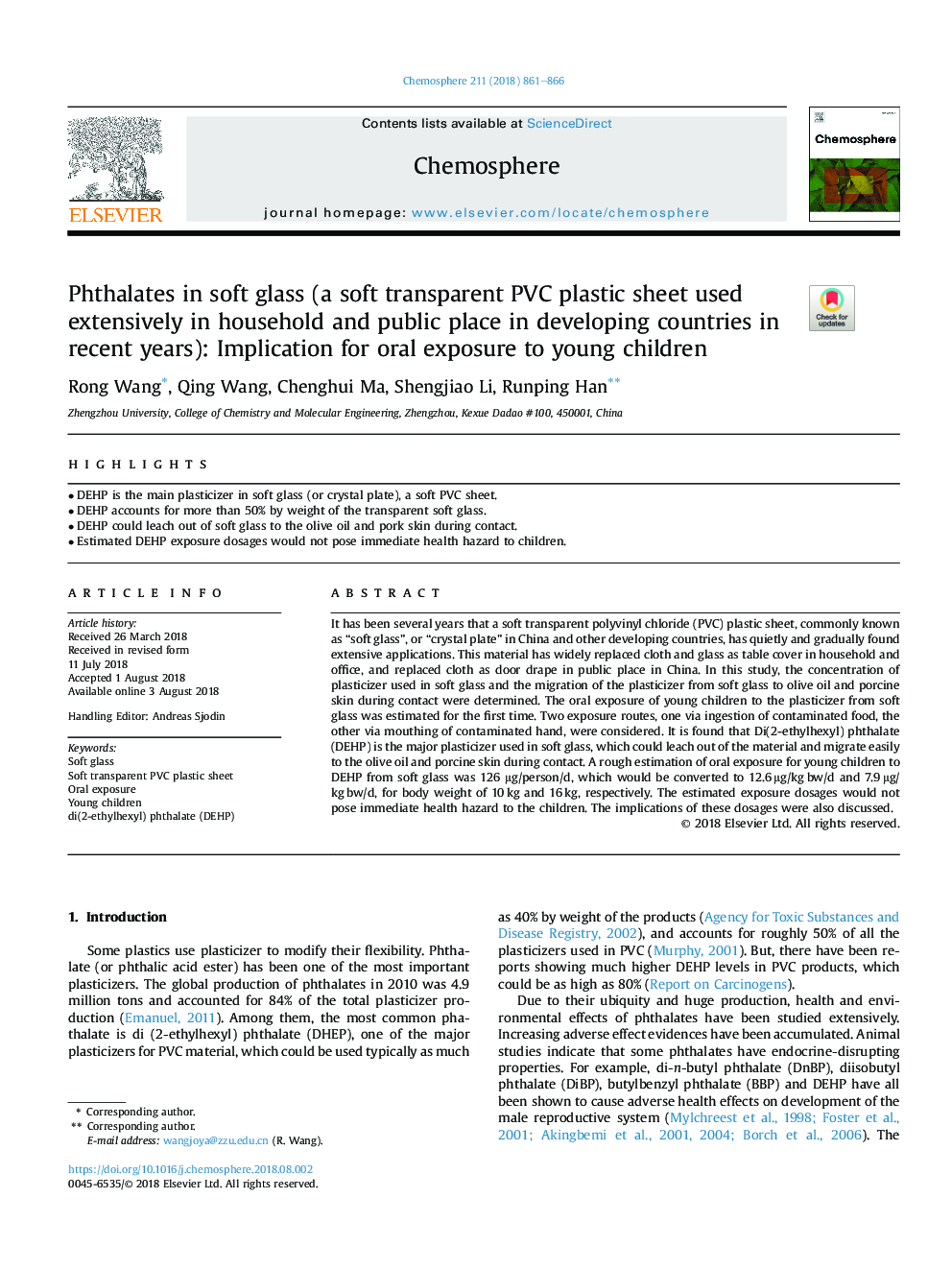| Article ID | Journal | Published Year | Pages | File Type |
|---|---|---|---|---|
| 8850279 | Chemosphere | 2018 | 6 Pages |
Abstract
It has been several years that a soft transparent polyvinyl chloride (PVC) plastic sheet, commonly known as “soft glass”, or “crystal plate” in China and other developing countries, has quietly and gradually found extensive applications. This material has widely replaced cloth and glass as table cover in household and office, and replaced cloth as door drape in public place in China. In this study, the concentration of plasticizer used in soft glass and the migration of the plasticizer from soft glass to olive oil and porcine skin during contact were determined. The oral exposure of young children to the plasticizer from soft glass was estimated for the first time. Two exposure routes, one via ingestion of contaminated food, the other via mouthing of contaminated hand, were considered. It is found that Di(2-ethylhexyl) phthalate (DEHP) is the major plasticizer used in soft glass, which could leach out of the material and migrate easily to the olive oil and porcine skin during contact. A rough estimation of oral exposure for young children to DEHP from soft glass was 126 μg/person/d, which would be converted to 12.6â¯Î¼g/kgâ¯bw/d and 7.9â¯Î¼g/kgâ¯bw/d, for body weight of 10â¯kg and 16â¯kg, respectively. The estimated exposure dosages would not pose immediate health hazard to the children. The implications of these dosages were also discussed.
Related Topics
Life Sciences
Environmental Science
Environmental Chemistry
Authors
Rong Wang, Qing Wang, Chenghui Ma, Shengjiao Li, Runping Han,
